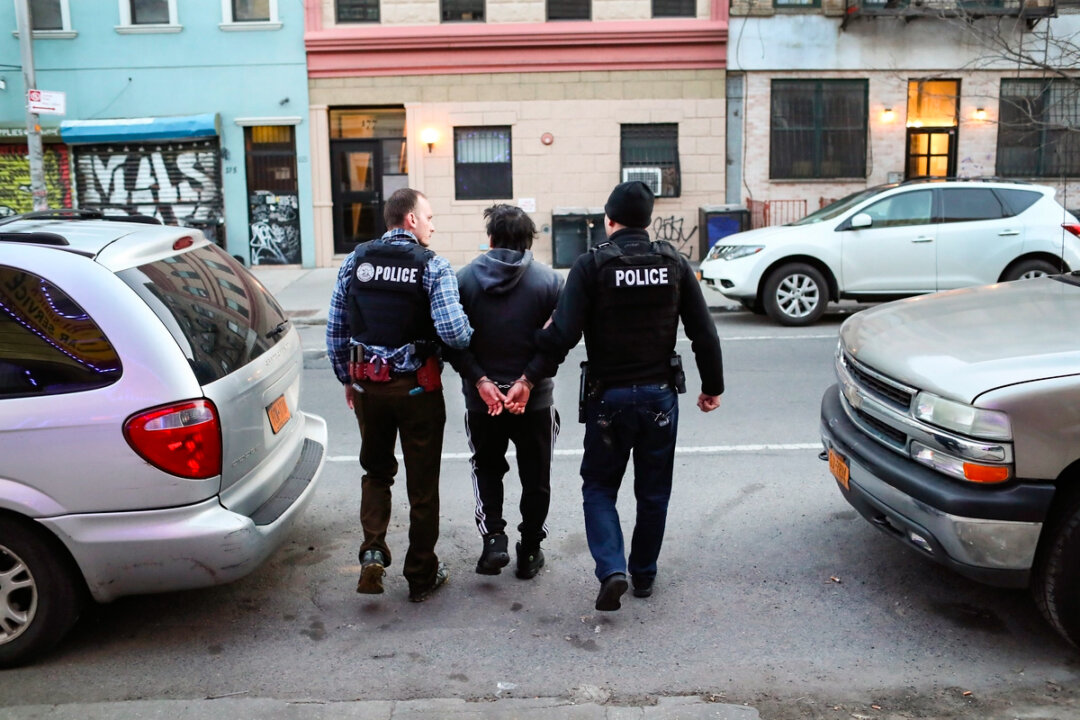San Francisco, Santa Clara, and 14 other cities sued to stop implementation of executive orders to strip federal taxpayer funding from them.
A federal judge has blocked a push by President Donald Trump to federally defund cities that have adopted so-called sanctuary policies for illegal immigrants.
In an April 24 order granting a preliminary injunction, federal Judge William H. Orrick of the U.S. District Court for the Northern District of California, sided with the plaintiffs: San Francisco, Santa Clara, and 14 other cities that would be affected by executive orders to strip federal taxpayer funding from them.
“The challenged sections … to withhold, freeze, or condition federal funding apportioned to localities by Congress, violate the Constitution’s separation of powers principles and the Spending Clause … [and] the Fifth Amendment to the extent they are unconstitutionally vague and violate due process,” Orrick wrote.
He banned the administration from implementing any funding cuts to such cities, a ruling that will remain in place pending further litigation of the issue.
Sanctuary cities are local governments that refuse to cooperate with federal immigration authorities in identifying or deporting illegal immigrants.
The push to defund such cities fits into the Trump administration’s larger goal of stopping illegal immigration and carrying out what the president has said would be “the largest deportation operation in American history.”
In 2017, during his first term, Trump signed Executive Order 13768, which sought to strip funding from many of the same cities involved in the current suit. At the time, Orrick sided with the plaintiffs to block implementation of the executive order.
That executive order, which strongly resembles the order halted by Orrick on Thursday, was based on ensuring compliance with 8 U.S. Code § 1373, which bars “a Federal, State, or local government entity or official [from prohibiting], or in any way restrict[ing], any government entity or official from sending … or receiving from … information regarding the citizenship or immigration status, lawful or unlawful, of any individual.”
Upon reclaiming the White House, Trump signed two new executive orders, numbered 14159 and 14218, whose “language and purpose … mirror EO 13768,” Orrick said.
Section 17 of EO 14159, which is at issue in the case, orders the attorney general and Department of Homeland Security secretary to “evaluate and undertake any lawful actions to ensure that so-called ’sanctuary’ jurisdictions, which seek to interfere with the lawful exercise of Federal law enforcement operations, do not receive access to Federal funds.”
Amid a flurry of legal challenges to Trump administration directives across the country, Attorney General Pam Bondi in February followed the orders up with a directive defining a sanctuary city as “state or local jurisdictions that refuse to comply with 8 U.S.C. § 1373, refuse to certify compliance with§ 1373, or willfully fail to comply with other applicable federal immigration laws.”
The directive also ordered relevant agencies within the Department of Justice to review their contracts, grants, and other financial arrangements with sanctuary cities and non-governmental organizations and to cut that funding where applicable and in line with the law.
Orrick said this move was “likely arbitrary and capricious, contrary to the Constitution and an ultra vires final agency action under the [Administrative Procedure Act].”
The administration has yet to respond to the decision.
It comes amid a series of similar injunctions from federal judges limiting the administration’s ability to carry out Trump’s border and immigration policies, prompting proposals in the U.S. Congress to weaken the judiciary and the extent of its injunctions against the administration’s policies.

